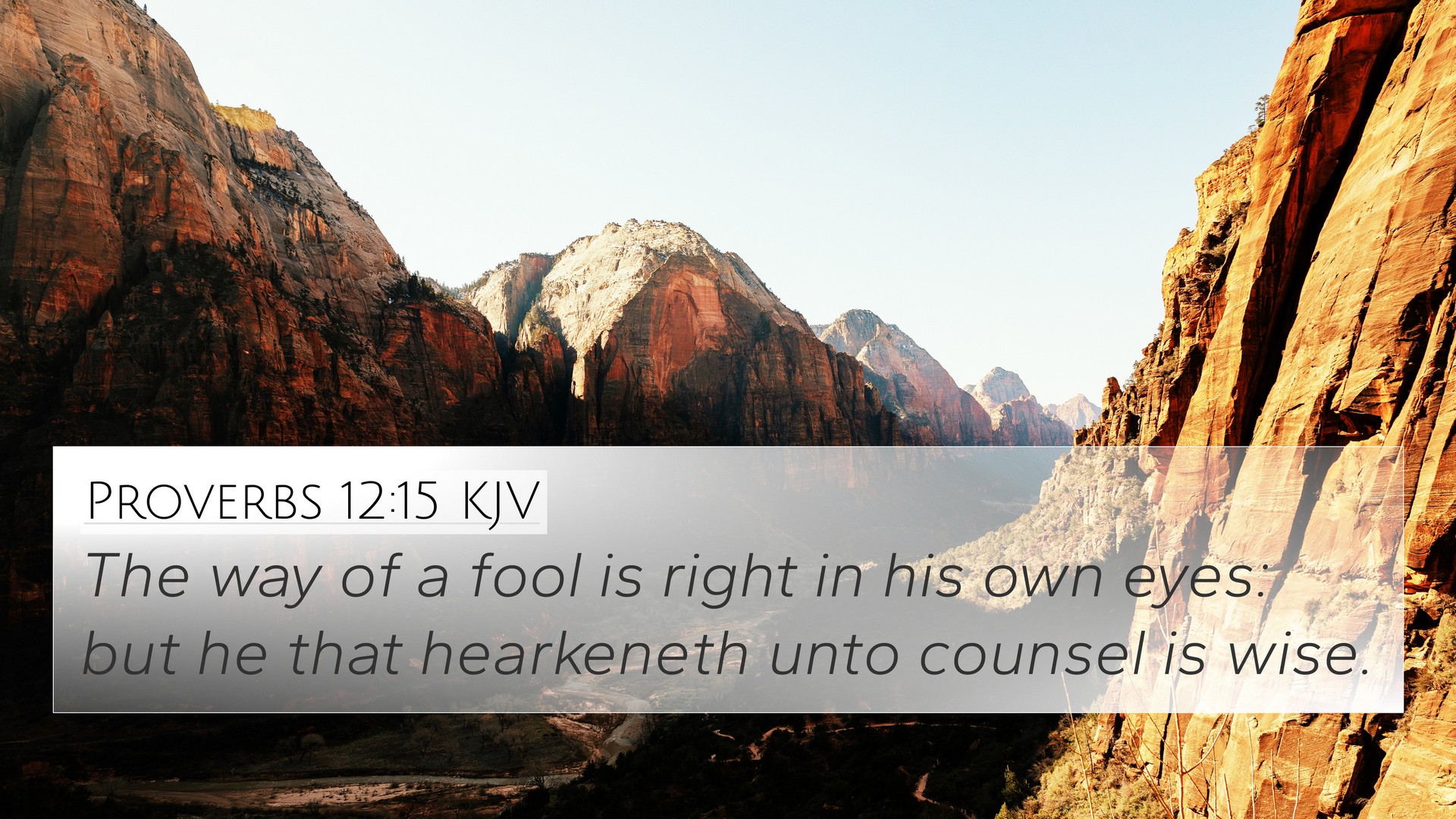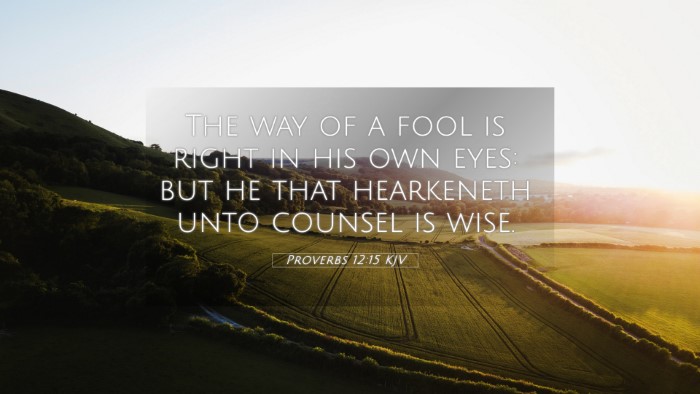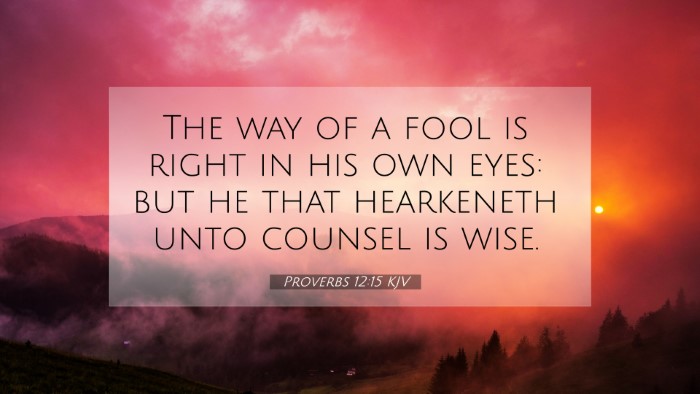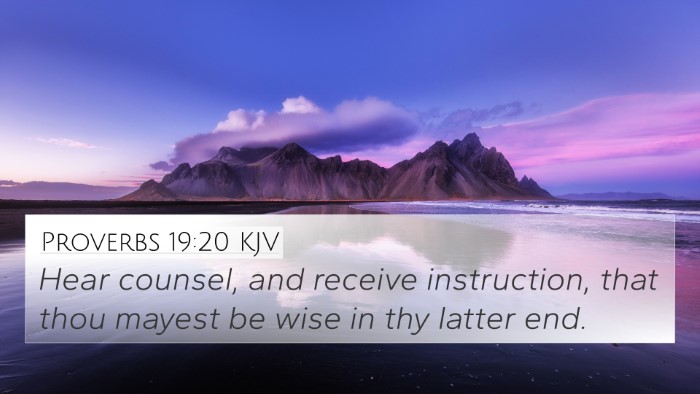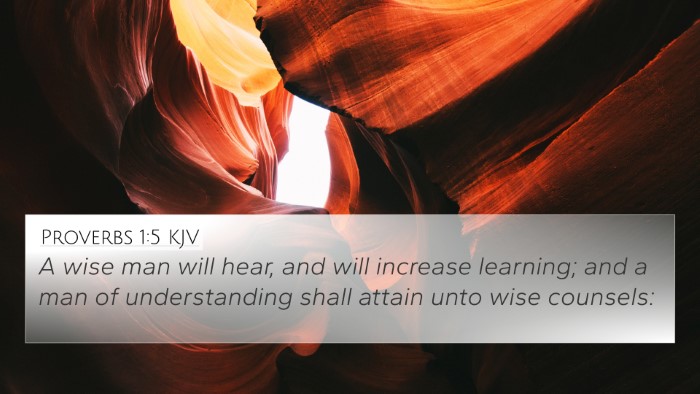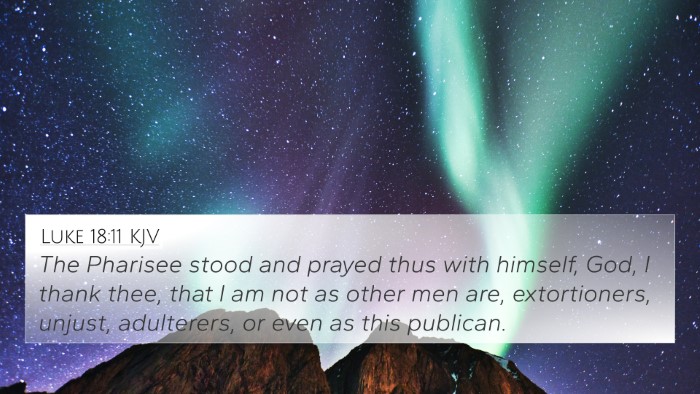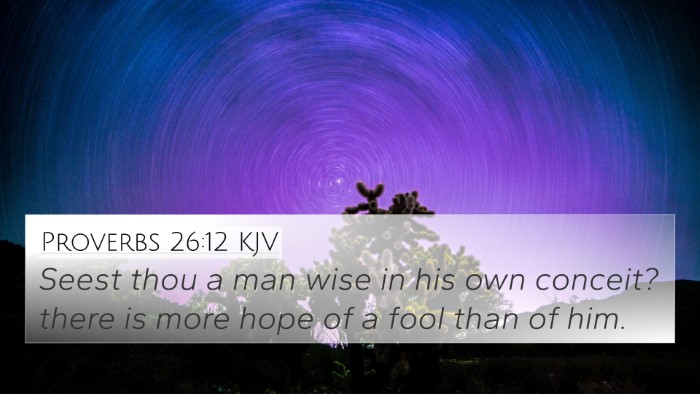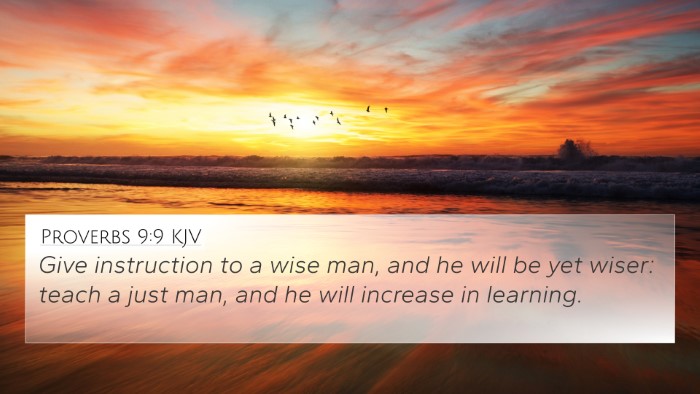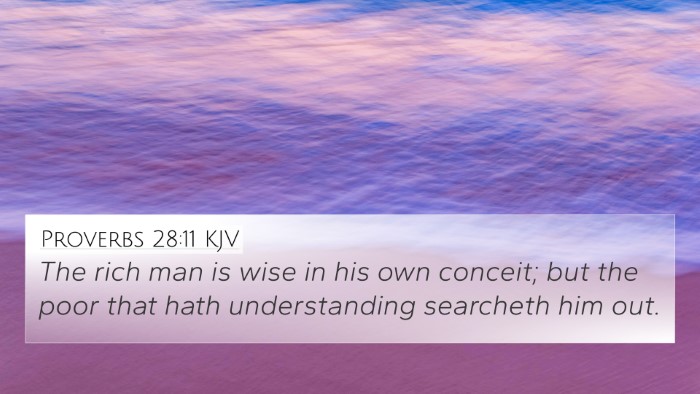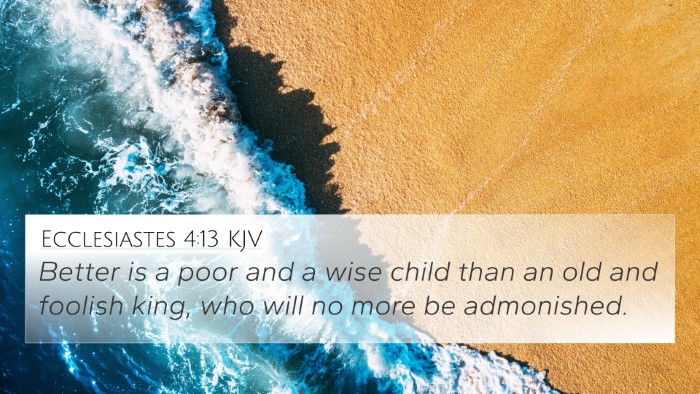Understanding Proverbs 12:15
Proverbs 12:15 states: "The way of a fool is right in his own eyes: but he that hearkeneth unto counsel is wise." This verse highlights the difference between the foolish and the wise, offering valuable insights into human behavior, decision-making, and the importance of seeking wise counsel.
Summary of Key Insights
This verse conveys two primary concepts:
- Foolishness: The fool operates under a self-deceptive mindset, believing that his own understanding is sufficient.
- Wisdom: The wise person acknowledges the need for guidance and is open to receiving counsel from others.
Exegesis of Proverbs 12:15
According to Matthew Henry's Commentary, this verse illustrates the dangers of self-reliance and the pivotal role that external wisdom plays in making sound decisions. The fool is described as someone who cannot recognize his own shortcomings and arrogance, essentially leading him down a perilous path.
Albert Barnes notes that the verse emphasizes the value of heeding wise counsel, which can lead to better outcomes. By contrast, those who trust solely in themselves often stumble in their decisions because they are not accountable to any perspective other than their own.
Adam Clarke elaborates by suggesting that the term “fool” encompasses a broader range of foolishness, including spiritual and moral ignorance. He stresses that seeking advice requires humility and a willingness to accept one’s limitations.
Cross-Referencing Biblical Texts
Proverbs 12:15 can be linked to several other Bible verses that further illuminate its themes:
- Proverbs 3:5-6: "Trust in the Lord with all thine heart; and lean not unto thine own understanding. In all thy ways acknowledge him, and he shall direct thy paths."
- Proverbs 11:14: "Where no counsel is, the people fall: but in the multitude of counselors there is safety."
- Proverbs 19:20: "Hear counsel, and receive instruction, that thou mayest be wise in thy latter end."
- James 1:5: "If any of you lack wisdom, let him ask of God, that giveth to all men liberally, and upbraideth not; and it shall be given him."
- Proverbs 15:22: "Without counsel purposes are disappointed: but in the multitude of counselors they are established."
- Proverbs 16:25: "There is a way that seemeth right unto a man, but the end thereof are the ways of death."
- Isaiah 5:21: "Woe unto them that are wise in their own eyes, and prudent in their own sight!"
Thematic Connections
By examining these cross-referenced verses, we observe several key themes: the importance of external wisdom, the pitfalls of self-delusion, and the necessity of humility in seeking guidance. These themes resonate throughout the wisdom literature and indeed the entire Bible, encouraging a posture of teachability and dependence on God.
Application of Proverbs 12:15
In practical terms, Proverbs 12:15 points believers toward a lifestyle characterized by:
- Seeking Godly Counsel: Engaging with wise individuals who can provide insights and corrective guidance.
- Self-Reflection: Understanding one’s limitations and biases to avoid the fool’s trap of self-righteousness.
- Openness to Correction: Embracing criticism and instruction as opportunities for growth.
Conclusion
Ultimately, Proverbs 12:15 serves as a reminder that wisdom is not merely an intellectual endeavor but a relational one—a call to engage with others and God in the pursuit of truth. In a world flooded with differing opinions, this verse clearly delineates between the paths of the wise and the fool.
Resources for Further Study
For those interested in exploring deeper connections between Bible verses, consider utilizing:
- Bible concordance for locating related scriptures
- Cross-reference Bible study tools for comprehensive analysis
- Methodologies for linking Bible scriptures within themed studies
Final Thoughts
As we enhance our understanding of verses such as Proverbs 12:15, we enrich our own spiritual journeys, garnering insights that not only inform our minds but transform our lives through the application of divine wisdom.
